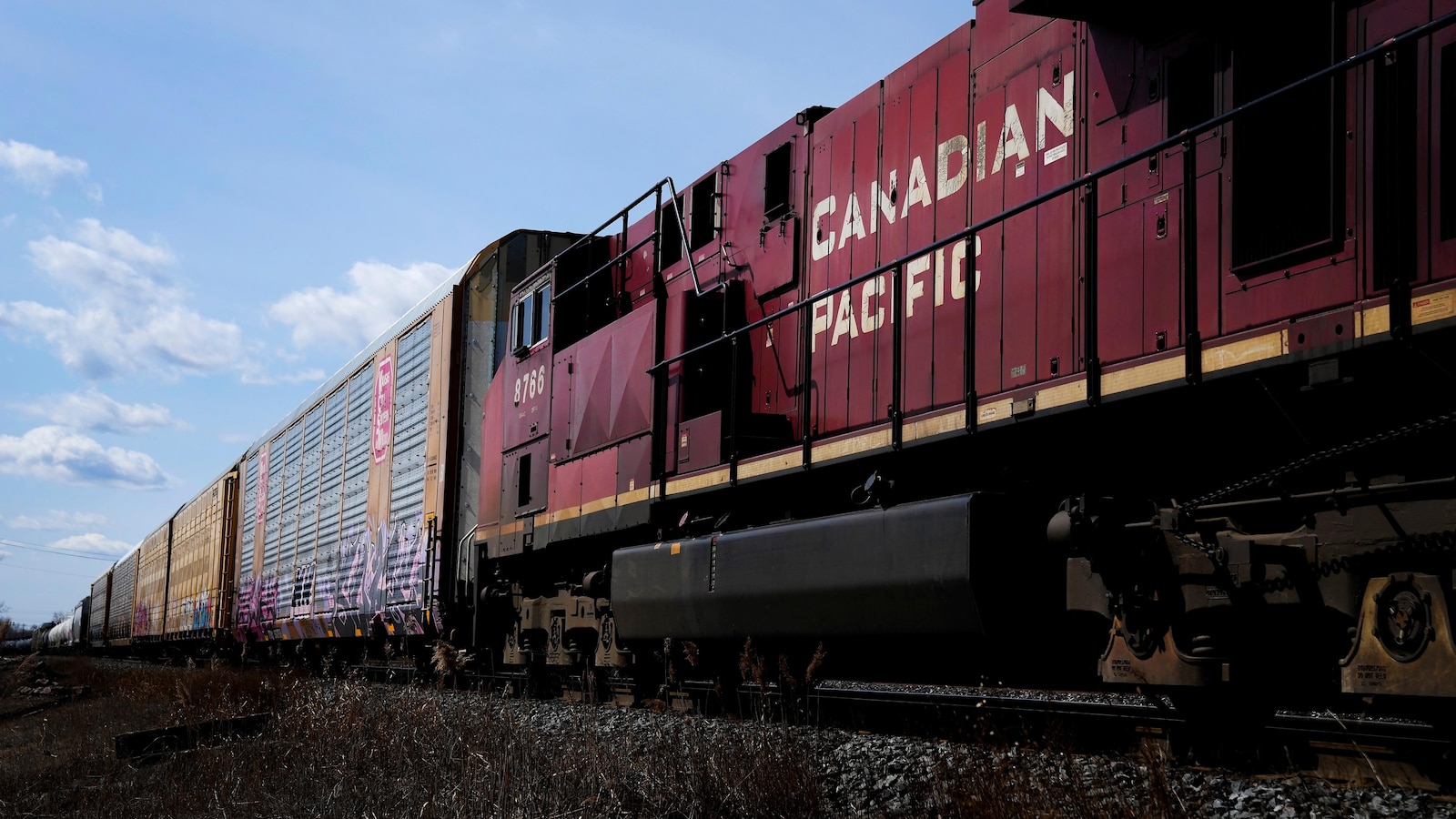
DETROIT — Canada’s two largest railroads are starting to shut down their shipping networks as a labor dispute with the Teamsters union threatens to cause lockouts or strikes that would disrupt cross-border trade with the U.S.
Both the Canadian Pacific Kansas City and Canadian National railroads, which haul millions of tons of freight across the border, have stopped taking certain shipments of hazardous materials and refrigerated products.
Both are threatening to lock out Teamsters Canada workers starting Thursday if deals are not reached.
On Tuesday, CPKC will stop all shipments that start in Canada and all shipments originating in the U.S. that are headed for Canada, the railroad said Saturday.
The Canadian Press reported that on Friday, Canadian National barred container imports from U.S. partner railroads.
Jeff Windau, industrials analyst for Edward Jones & Co., said his firm expects work stoppages to last only a few days, but if they go longer, there could be significant supply chain disruptions.
“If something would carry on more of a longer term in nature, then I think there are some significant potential issues just given the amount of goods that are handled each day,” Windau said. “By and large the rails touch pretty much all of the economy.”
The two railroads handle about 40,000 carloads of freight each day, worth about $1 billion, Windau said. Shipments of fully built automobiles and auto parts, chemicals, forestry products and agricultural goods would be hit hard, he said, especially with harvest season looming.
Both railroads have extensive networks in the U.S., and CPKC also serves Mexico. Those operations will keep running even if there is a work stoppage.
CPKC said it remains committed to avoiding a work stoppage that would damage Canada’s economy and international reputation. “However we must take responsible and prudent steps to prepare for a potential rail service interruption next week,” spokesman Patrick Waldron said in a statement.
Shutting down the network will allow the railroad to get dangerous goods off IT before any stoppage, CPKC said.
Union spokesman Christopher Monette said in an email Saturday that negotiations continue, but the situation has shifted from a possible strike to “near certain lockout” by the railroads.
CPKC said bargaining is scheduled to continue on Sunday with the union, which represents nearly 10,000 workers at both railroads. The company said it continues to bargain in good faith.
Canadian National said in a statement Friday that there had been no meaningful progress in negotiations and it hoped the union “will engage meaningfully” during a meeting scheduled for Saturday.
“CN wants a resolution that allows the company to get back to what it does best as a team, moving customers’ goods and the economy,” the railroad said.
Negotiations have been going on since last November, and contracts expired at the end of 2023. They were extended as talks continued.
The union said company demands on crew scheduling, rail safety and worker fatigue are the main sticking points.
Windau said the trucking industry currently has a lot of excess capacity and might be able to make up some of the railroads’ shipping volumes, but, “You’re not going to be able to replace all of that with trucking.”
Canada’s largest railroads, Canadian National Railway (CN) and Canadian Pacific Railway (CP), are facing the possibility of a work stoppage next week as negotiations between the rail companies and their workers’ unions have reached an impasse. This potential strike could have a significant impact on the US supply chain, as these railroads play a crucial role in transporting goods between Canada and the United States.
CN and CP are key players in North America’s rail transportation network, with CN being the largest railway in Canada and CP being one of the country’s major freight carriers. Together, these two railroads handle a large portion of the cross-border trade between Canada and the US, transporting a wide range of goods including automotive parts, agricultural products, consumer goods, and raw materials.
If a work stoppage were to occur at CN and CP, it could disrupt the flow of goods between the two countries, causing delays in deliveries and potentially leading to shortages of essential products. The US relies heavily on Canadian railroads to transport goods to and from its northern neighbor, so any disruption in service could have far-reaching consequences for businesses on both sides of the border.
The impact of a potential rail strike would be felt across various industries, including manufacturing, agriculture, and retail. Manufacturers that rely on just-in-time delivery of parts and materials could face production delays, while farmers who depend on rail transportation to get their products to market could see their crops rotting in storage. Retailers may also experience shortages of goods if shipments are delayed or canceled due to the strike.
In addition to the immediate impact on businesses, a work stoppage at CN and CP could also have broader economic implications. The disruption in supply chains could lead to higher transportation costs, reduced productivity, and lost revenue for companies that rely on rail transportation. This could ultimately result in job losses and decreased economic growth in both Canada and the US.
To mitigate the potential impact of a rail strike, businesses that rely on CN and CP for transportation should consider alternative shipping methods, such as trucking or air freight. They may also want to stock up on essential supplies in advance to ensure they have an adequate inventory in case of delays.
Ultimately, the outcome of the negotiations between CN, CP, and their workers’ unions will determine whether a work stoppage occurs next week. Both sides have expressed a willingness to continue bargaining in hopes of reaching a resolution before the deadline. However, if an agreement is not reached in time, the US supply chain could be facing significant disruptions that will require careful planning and coordination to minimize the impact on businesses and consumers.


